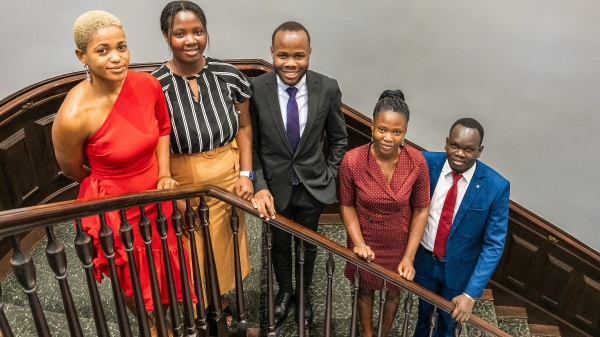Online retailers have an opportunity to persuade hesitant shoppers to click “buy” this holiday season, according to new research by an Arizona State University marketing professor.
It’s all in the labeling.
A study by Christopher Lee, a clinical assistant professor in the W. P. Carey School of Business at ASU, discovered that online shoppers are more likely to purchase an item as a gift if it’s labeled a “best-seller.”
However, people are more likely to buy something for themselves if it’s branded “limited edition,” according to the project, published in the Journal of Retailing at New York University.
“It’s the idea where in any gift-buying scenario, we’re nervous if they’ll like it and whether it’s a good product,” Lee said. “The idea that ‘this is a best-seller’ would help ease that uncomfortable feeling.
“But when we’re buying for ourselves, we’re driven by two things — a need to be unique, but also a need to belong. So when a product is labeled ‘limited edition,’ we’re more persuaded by that for ourselves,” he said.
Lee researches framing — how the subtle use of words can change perceptions.
“If I describe an arena as ‘half full’ or ‘half empty’ and ask people to predict attendance, how close the game is or other information, it turns out that switching those two words influences perception,” he said.
Lee, who got his master’s of business administration degree at ASU, returned to ASU this year after serving as an assistant professor at Temple University, where he started this project with a colleague, Laurie Wu, an assistant professor in the School of Sport, Tourism and Hospitality Management.
The two researchers began by studying Google search trends and found that people more frequently searched for “limited edition” than “best-seller.” That is, until they added the word “gift” to the search query and found the results flipped. People more frequently searched for “best-seller” and “gift,” particularly in December.
Christopher Lee
So to dig deeper, they created four online surveys and polled hundreds of people around the country about how likely they were to buy different products, such as a coffee mug, a bobble-head figurine or wine for themselves or someone else. Then the researcher changed the description to be either “best-seller” or “limited edition,” and they measured the differences.
“The idea held that if I’m buying for someone else, I’d rather have a best-seller than something unique,” he said.
However, Lee and Wu also found that price can negate the effect. Later studies included the price on the bottle of wine.
“If I see a bottle of wine that’s $10, I’m not going to believe that it’s a limited edition because it’s so cheap,” he said. “On the flip side, we tried it with a $25 bottle of wine and saw that the ‘best-seller’ cue doesn’t work as well because I’m not going to believe that a relatively expensive bottle of wine is a best-seller.
“The pricing itself can enhance or detract from this effect working. If you have an expensive item and you’re trying to convince people it’s a best-seller, that’s a tough sell.”
The effect also is modified is you know the gift recipient fairly well. The surveys involved buying items for colleagues, and subjects were asked to indicate how close the relationship was. The less close the relationship, the more risk in the gift giving, so the “best-seller” label helps.
“If you know the recipient of the gift really well, it is similar to buying for yourself, in which case the ‘best-seller for others’ effect goes away,” he said.
The researchers said that online retailers should use the “best-seller” label ethically — on the items that actually are the most popular, as indicated by an automatic sorter — rather than applying it arbitrarily for marketing purposes.
Lee said that some online giants such as Amazon and Gifts.com are proficient in this strategy, tagging their best-selling items, while other retailers stick with simple branding like “gifts for him.”
“They’re missing an opportunity to persuade people,” he said.
See the study here.
More Business and entrepreneurship

ASU, Ghana partnership enhances supply chain practices in Africa
As a New American University, ASU defines the communities it serves as including both its backyard neighbors and colleagues around the world. For the past four years, Arizona State University…

Cohort of Mastercard Foundation Scholars poised to become AI leaders in Africa
Arizona State University is celebrating a significant milestone in expanding the university’s global access mission by welcoming the newest cohort of Mastercard Foundation Scholars, who will…

Networking event turns pitches into partnerships
Perfect timing, quick decisions and electrifying energy are vital aspects of both startup ventures and auctions. In an environment where every moment matters, everyone is searching for the deal that…

